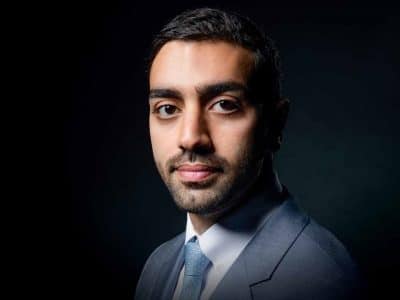The Grand Mufti of Dubai has reiterated his fatwa against Muslims applying to travel to Mars after a Dutch firm received 1.259 applications from the Gulf region to be part of a project to set up the first human settlement on the Red Planet by 2023.
In September, a spokesperson for the firm behind project told Arabian Business 1,259 Gulf residents had applied to join the Martian program, with the majority of applications coming from Saudi Arabia.
The Mars One Astronaut Selection Program received more than 202,586 applications from people around the world seeking to be among the first to obtain a one-way ticket to live on the Red Planet.
By 2015, six to ten teams of four individuals will be selected for seven years of full-time training. In 2023, one of these teams will become the first humans ever to land on Mars and live there for the rest of their lives.
However, the move has been strongly condemned by the Grand Mufti of Dubai Dr Ahmed Al Haddad who has issued a fatwa that no Muslims should take up the offer if they are selected to the final rounds of the application process.
The fatwa is in response to a request raised by Netherlands-based trip organiser, Mars One, for recalling a similar ruling issued by a committee under the General Authority of Islamic Affairs and Endowment in the UAE.
“Such a one-way expedition poses a risk to life, and can never be justified,” the committee said.
“There is a possibility that an individual who travels to Mars may not be able to remain alive there, and shall be more liable to death,” the cleric was quoted as saying by the Khaleej Times newspaper.
“People are not permitted to risk their life even if expecting little harm, as forbidden in verse 195/2 of the Holy Quran that says ‘And do not throw (yourselves) with your (own) hands into destruction’, and verse 29/4 ‘And do not kill yourselves (or one another). Indeed, Allah is to you ever Merciful’.”
While Mars One’s request for the fatwa to be lifted, Dr Haddad has called on all human rights watchdogs, governments and the United Nations to group together and “to come up with a collective fatwa” against the proposed project.
Despite reservations by Muslim clerics, the US is already in the early stages of plans to land humans on the surface of Mars in 2036, Charles Elachi, head of NASA’s missions to the Red Planet, told delegates at the Arabian Business Forum in Dubai in November 2012.
“We don’t have a programme [to send a man to Mars] but we are starting to plan,” Elachi, who heads up the Jet Propulsion Laboratory (JPL), the Pasadena-based NASA agency that constructs and operates robotic planetary spacecraft, said.
“Interestingly enough we can go to Mars every four years or so. Every 18 years they get very close. We are thinking not for 2018 but 2036 [for a human mission],” he added.
Elachi’s team at JPL successfully masterminded the landing of a one-tonne vehicle – called ‘Curiosity’ – in a deep crater on the surface of Mars in August 2012.
The rover has now begun a two-year mission to look for evidence that the Red Planet may once have supported life, but Elachi said plans to send humans to Mars is possible.








